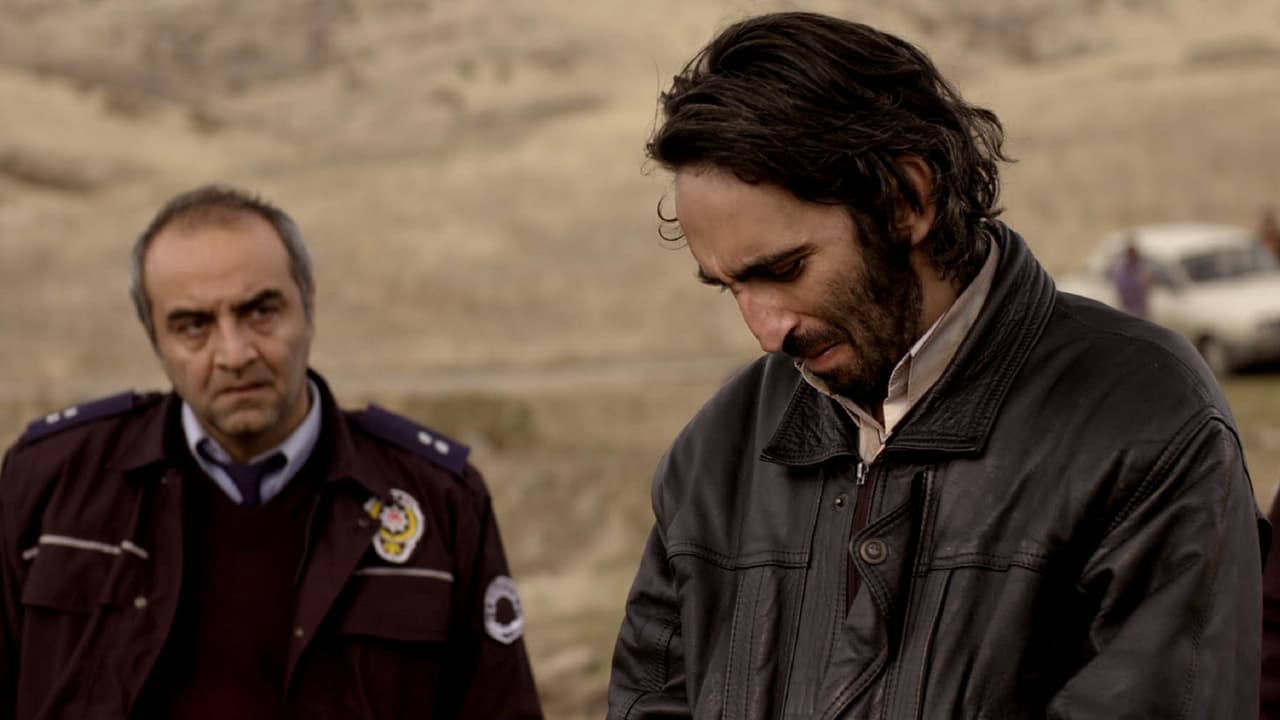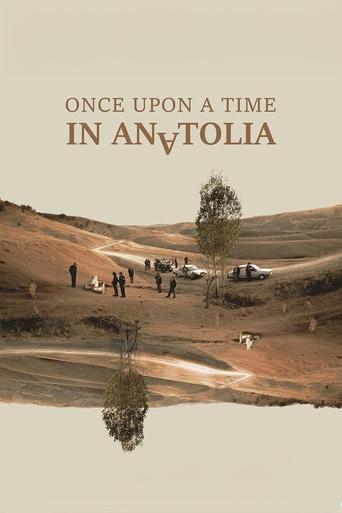Hellen
I like the storyline of this show,it attract me so much
SteinMo
What a freaking movie. So many twists and turns. Absolutely intense from start to finish.
Ezmae Chang
This is a small, humorous movie in some ways, but it has a huge heart. What a nice experience.
Married Baby
Just intense enough to provide a much-needed diversion, just lightweight enough to make you forget about it soon after it’s over. It’s not exactly “good,” per se, but it does what it sets out to do in terms of putting us on edge, which makes it … successful?
Sameir Ali
Once Upon a Time in Anatolia is a 2011 Turkish movie. A beautifully well-made film. A group of Officers including a Prosecutor, Doctor, Police Commissioner, the Suspect, his Brother and other Officers are in search of the dead body. The suspect has already confessed about the murder and he agrees to show the place where he buried the victim. But, it was not as easy as that. The suspect was drinking that night and it was too dark. It made the group to search one location after another. Too tired and frustrated, the go to rest in a place.The movie is slow but, it will take your heart for sure. Each and every character is well made, well described and beautifully portrayed. Actors have done a great job in making it real authentic. As the film ends, every character is close to us. Everyone has their own story. The movie travels in through a story, but, I was stuck up in another story that the film maker has implanted into my mind. It should have been purposeful.Do not miss this amazing movie. A must watch.#KiduMovie
Roger Burke
At just over two and a half hours, this fourth effort by the directorial minimalist master, Nuri Ceylan, will probably deter many viewers. From the fade-in, however, fans of Ceylan will be immediately drawn into - once again almost voyeuristically through a dirty glass window as the scene focuses - the ordinary lives of three men sharing a meal, drinks, conversation and jokes at a run-down garage somewhere in Anatolia. Voices are so muffled we can't hear what is being said. We don't know who these men are.Heavy traffic crisscrosses the scene, occasionally obscuring the view; outside, a dog barks. One of the men picks up food and, as the scene widens to show the darkly brooding night sky crashing with thunder (almost a Ceylan trademark in movies), he takes the food to the dog, gives it a pat, looks around and up, and returns to his meal and the others. Fade to black.Next fade-in (next day? next week? who knows?) at dusk, we see on the horizon, from a high vantage-point, three sets of headlights which eventually stop nearby to disgorge many police and others, perhaps a dozen men in all. In the dimming light, we can just see one of the men is handcuffed. None of the faces are clearly seen. As the story now gets under way, we discover that two of the men are somehow involved in the death of another person, and efforts are now in progress to find a buried body.So ... we settle back comfortably to watch how director Ceylan unravels the mystery for us: the who, what, where, how and why of all good mysteries. All well and good, except for one thing: the real story here is actually not about finding a body somewhere in these Anatolian hills, nor who it is, how and why the death happened, or even when. The real story is certainly about a death, though - an almost unbelievably poignant, pointless death which is revealed and discussed between two of the officials as the whole search party continues to travel through the night, from place to place, up hill and down dale, hour after hour, until eventually, the accused man - who looks familiar - correctly pinpoints where the corpse lies. From there, the body's taken to the local hospital for autopsy and official report. The two accused are taken to the local lockup. By this time, and no longer comfortable, we don't really care much about that issue, that sordid little side affair, whatever it was about. What's more important is the outcome between those two officials who wrestled, quietly vehemently, emotionally and psychologically about guilt, forgiveness and justice through much of the night and into the day. And all of which shows again the creativity and skill of Nuri Ceylan, his actors and his production team in creeping into viewers' minds so effectively. Again.The setting is bleakly appropriate, recalling landscape imagery we saw in No Country for Old Men (2007); but this one uses that type of vista for most of the time. Moreover, the two movies each have no music soundtrack which, for this viewer, is always a welcome omission. The script and acting are simply superb.Nuri Ceylan (and don't forget his wife, Ebru, who helps write and produce) is, IMHO, one of the best directors on this planet; arguably the best I've seen at mood-setting static and long takes, and facial close-ups; and, along with Ebru, brings some of the most innovative stories I've seen in all my 70 viewing years. Together, (if you'll excuse the hyperbole) they're the Turkish Dream Team of Cinema. Long may they continue to develop and produce the highest quality cinematic experience.Recommended for all to see. Give this a well-deserved nine.July 18, 2016.
fellini_58701
Nuri Bilge Ceylan just won a Palm D'Or for "Winter Sleep" at Cannes 2014 so I felt compelled to watch for a second time "Once Upon A Time In Anatolia" i didn't care to much for it the first time around but what i liked about was the beautiful cinematography by Gokhan Tiriyaki. I still feel the same about it now , a few things about the story popped in my mind i don't quite understand, number one the police, prosecutor, inspector and grave digger all go on a night road trip with two brothers who apparently confess to a murder and buried the body out in the middle of nowhere, one of the brothers was drunk and the other mentally challenged, At night wouldn't it be wiser to search during the day? and number 2 how drunk was the suspect to even drive half way across the country along with his menatlly challenged brother to even bury the body. It just doesn't make sense to me. The long shots extended dialogue these characters carry are never interseting. I love the cinema i love 3 hour films with limited dialogue to name a a few Bela Tarr's The Turin Horse, Andrei Tarkovsky's The Sacrifice and Ermano Olmi's The Tree Of Wooden Clogs there was something special involving and intriguing about those films. I think prentious snobbery drives critics and the jury at cannes in 2011 to reward this film and i hope Winter Sleep is surprises me.
petra_ste
More Chekhov than CSI, the movie follows a group of men - a commissar, a prosecutor, a doctor, a few cops, a confessed murderer and his accomplice - through a long night as they travel in rural Anatolia, searching for the location of the victim's buried body.Introspective and slow-paced, Once Upon a Time in Anatolia plays like an anti-detective story. Details of the case are sketchy, the suspects' recollections fuzzy; the story unfolds placing a much greater emphasis on characters. Both the cinematography and the actors' gaunt, tense faces capture the sense of dream-like tiredness and quiet desperation of people persisting in an exhausting, possibly useless task; a few voice-overs are largely unnecessary.Men are lonely and brooding; female figures pass by like visions or ghosts; truth proves to be disquieting, both in the main case and in a tale told by the prosecutor which slowly turns into a horrible revelation - significantly, the anecdote is straight out of a short story by Chekhov himself (The Examining Magistrate).7,5/10

